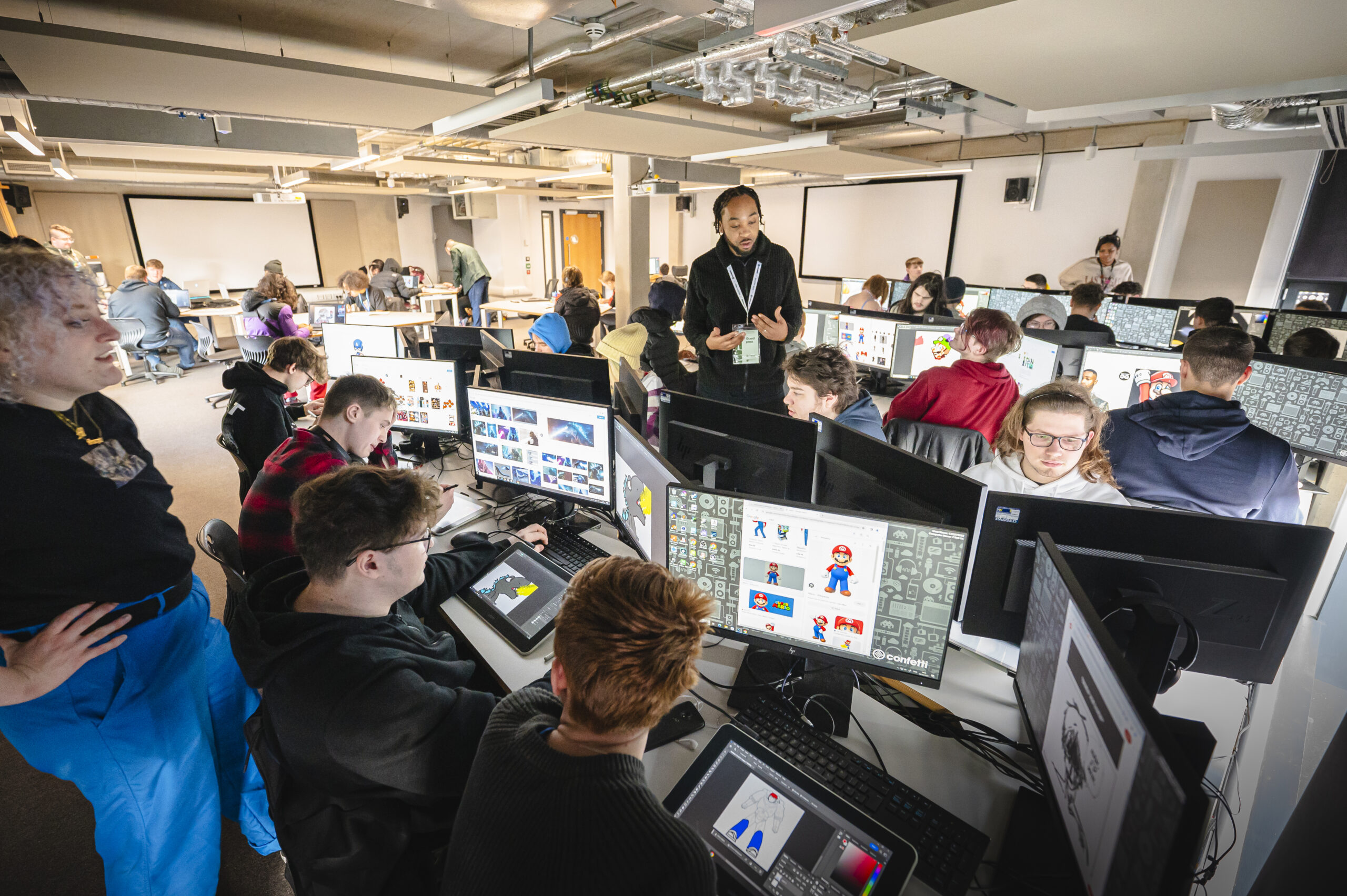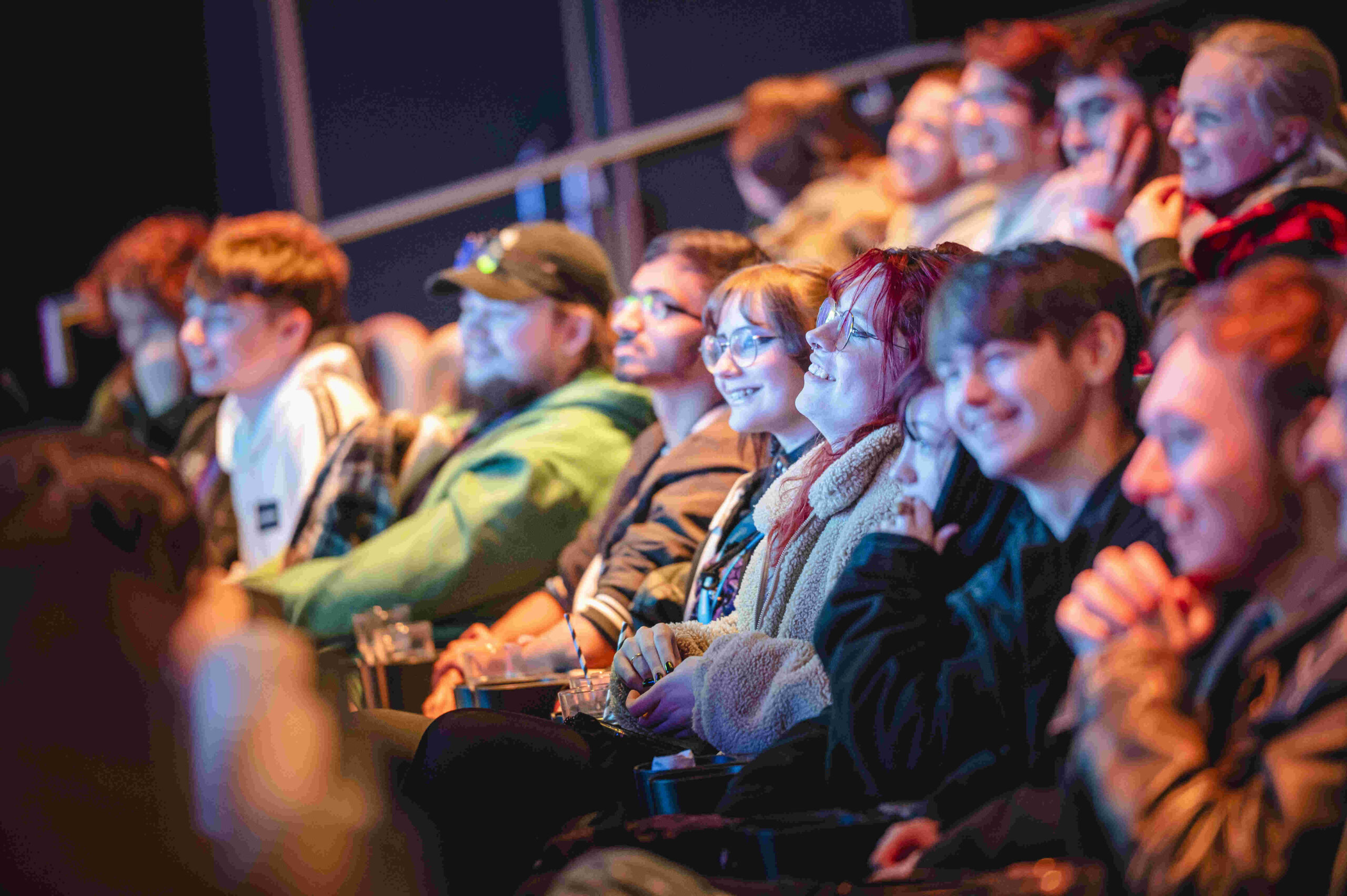This module will allow you to learn and develop the skills required to imagine and visualise imaginary worlds and the characters and assets within them, representing them with verisimilitude. You will develop concept art skills in order to explore ideas and produce client ready speculative art.
Building a game world (20 Credit Points)
This module will teach you how to explore 2D and 3D solutions to environment design and apply technical knowledge to these tasks. You will develop your concept art skills in order to explore ideas and produce client ready speculative art. You will also enhance your 3D repertoire to develop your concept and ideas as fully realised 3D Levels. This module will also include written elements in the form of media reviews (prose and moving image) as well as artist reviews.
Industry Collaboration: Pre-Production (20 Credit Points)
This module challenges students to pre-produce your first AWLE Project. Taking a brief from client to final presentation encourages you to engage with an ambitious creative pipeline, creating and developing final designs for characters and assets for an existing IP.
Industry Collaboration: Production (20 Credit Points)
Produce your first AWLE Project. Taking a brief from client to final presentation encourages you to engage with an ambitious creative pipeline. Building on the work completed in the Pre-Production module, you will now use industry-standard software to finalise your designs to present to clients.
Games artist toolkit (20 Credit Points)
This module comprises two elements – Life Drawing and 3D Software. Together, they enhance and expand upon core skillsets fundamental to the origination and execution of engaging computer-generated imagery. Drawing introduces approaches to studies in drawing central to the enterprise of visual expression with an emphasis on life drawing.
Critical & contextual studies (20 Credit Points)
You’ll be introduced to theoretical frameworks through which to consider, contextualise and challenge your creative practice. Understanding the historical, cultural and theoretical context in which computer-generated imagery situates is crucial to broadening perspectives and enriching your abilities to discuss, develop and disseminate your ideas with confidence.






